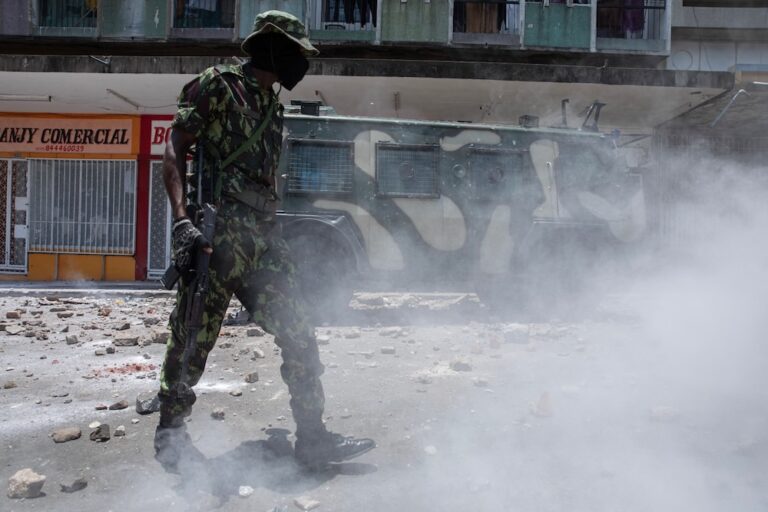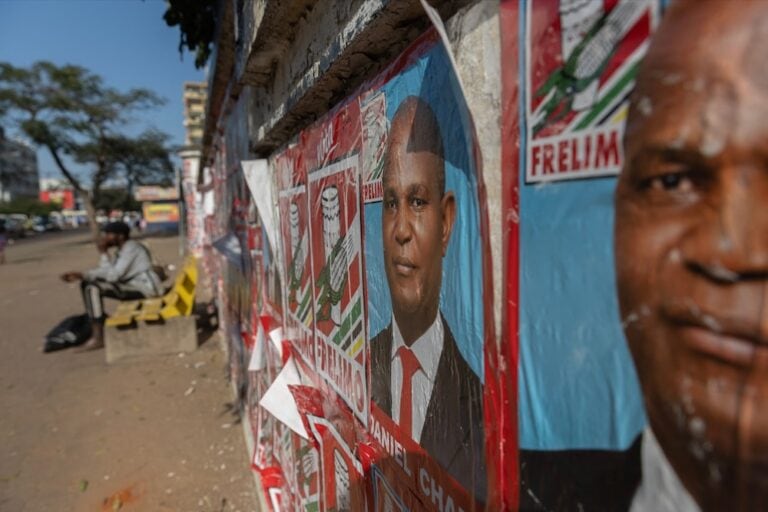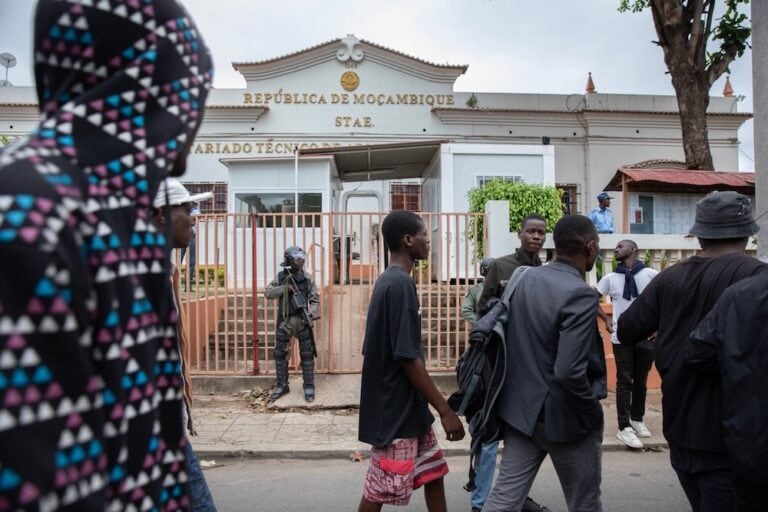(RSF/IFEX) – In a letter to Mozambican President Joaquim Chissano, RSF Secretary-General Robert Ménard expressed his grave concern following the 22 November 2000 killing of Carlos Cardoso, journalist and founder of the investigative daily “Metical”. Ménard also asked that “every effort be made to lead a thorough and impartial investigation into the assassination, that the […]
(RSF/IFEX) – In a letter to Mozambican President Joaquim Chissano, RSF Secretary-General Robert Ménard expressed his grave concern following the 22 November 2000 killing of Carlos Cardoso, journalist and founder of the investigative daily “Metical”. Ménard also asked that “every effort be made to lead a thorough and impartial investigation into the assassination, that the results be made public and that the guilty parties be arrested and punished.” The organisation’s secretary-general added that “it is imperative that full light be shed on this murder, so as to restore confidence in Mozambican media circles.”
According to information collected by RSF, Cardoso was killed on 22 November, in the late afternoon, close to the offices of “Metical”, in Maputo. Two vehicles drew level with Cardoso’s car, at least two men got out and opened fire on him point-blank, riddling him with bullets. The police stated that an inquiry had been launched but has yet to issue a statement on the results of its initial work. Cardoso was also a member of Juntos telacidade (an opposition party), which he represented on Maputo’s municipal council. The motives behind the assassination remain unclear. Those close to Cardoso claim he did not have any known enemies, and the journalist is not known to have received any threats. Cardoso was director of the official Mozambican news agency from 1980 to 1988. He then founded “Mediafax”, the country’s first independent newspaper, at the beginning of the 1990’s, before launching “Metical” in 1998.
RSF recalled that on 30 May, Cardoso had been summoned by the minister of justice to reveal the names of his sources in an inquiry on a fraud case, in contravention of the 1991 Press Law. The journalist visited the ministry on 2 June, but refused to answer the authorities’ questions (see IFEX alert of 6 June 2000). Though the state audiovisual sector is often accused of lacking independence, the private press enjoys great freedom in Mozambique.
RSF also wishes to condemn the assault on Custadio Rafael, a Radio Mozambique journalist. On 22 November, in the evening, while Rafael was on his way home, three men attacked him, beat him and slashed his tongue, telling him that he “spoke too much.” He was left unconscious on the road. Taken to hospital, he received eight stitches to his face and tongue. “The authorities must act quickly to end this wave of attacks and threats so that journalists can work with a sense of security,” said Ménard. RSF asked that an investigation be launched, those resposible be punished and measures be taken by the Mozambican government to guarantee the security of journalists.


